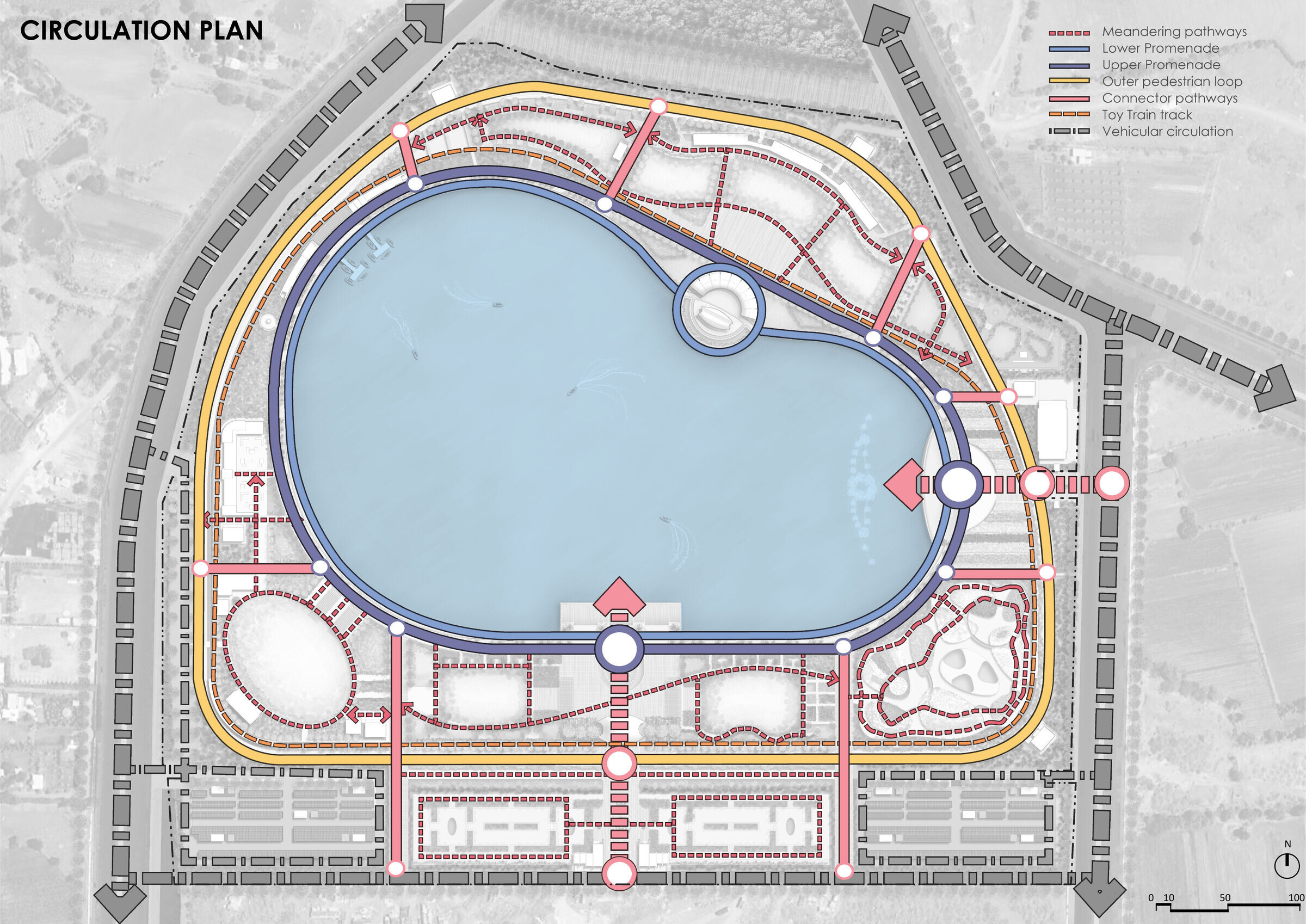The Evolution of Atal Sarovar - A Model for Water-Sensitive Urban Futures
In the contemporary discourse on urban development, the integration of sustainable practices has emerged as a defining priority — especially in the revitalization of urban water bodies.
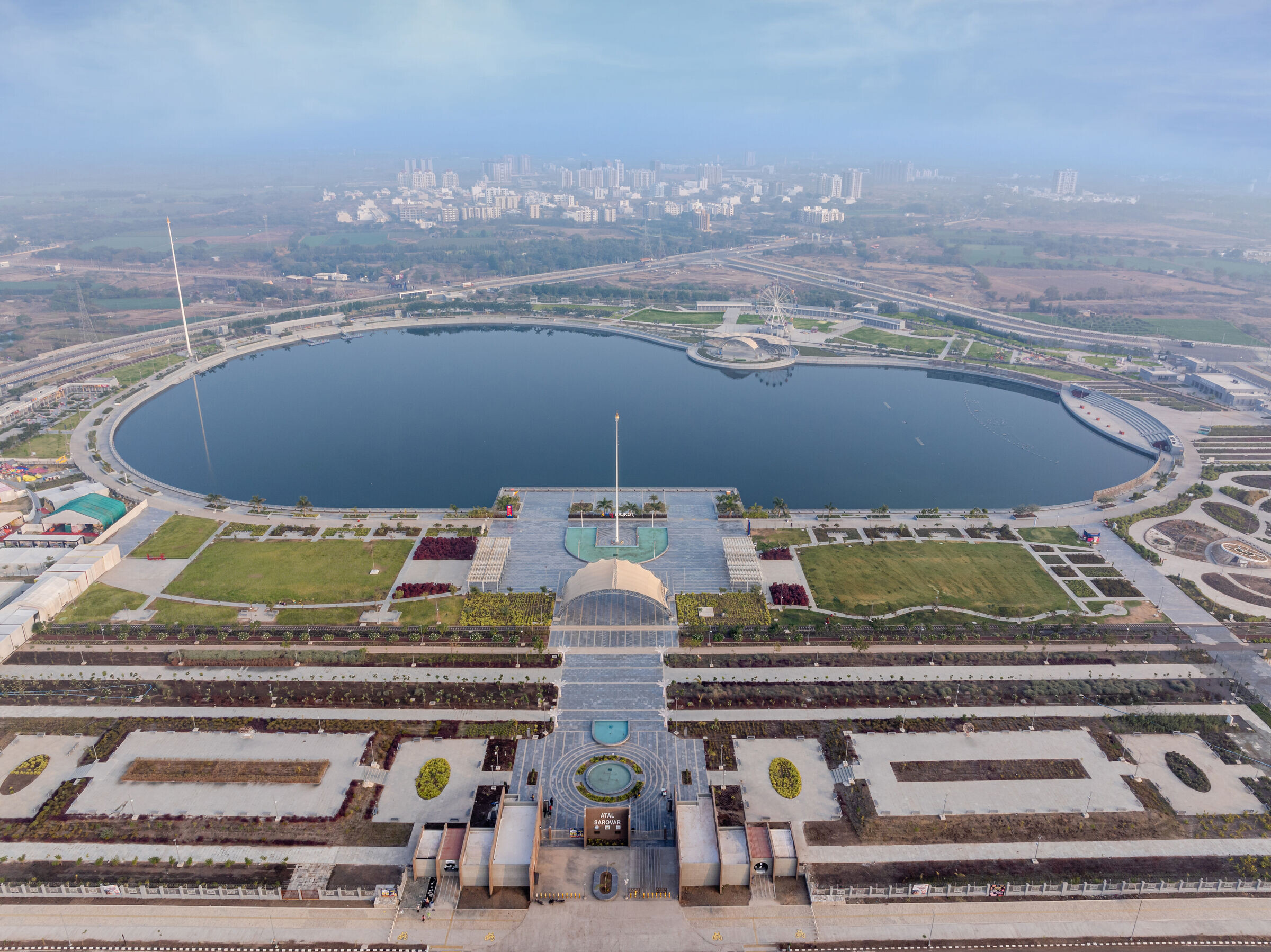
The principles of Water-Sensitive Urban Design (WSUD) encourage cities to embed natural hydrological systems within their fabric, fostering ecological resilience, enhancing public spaces, and restoring a community’s intrinsic relationship with water.
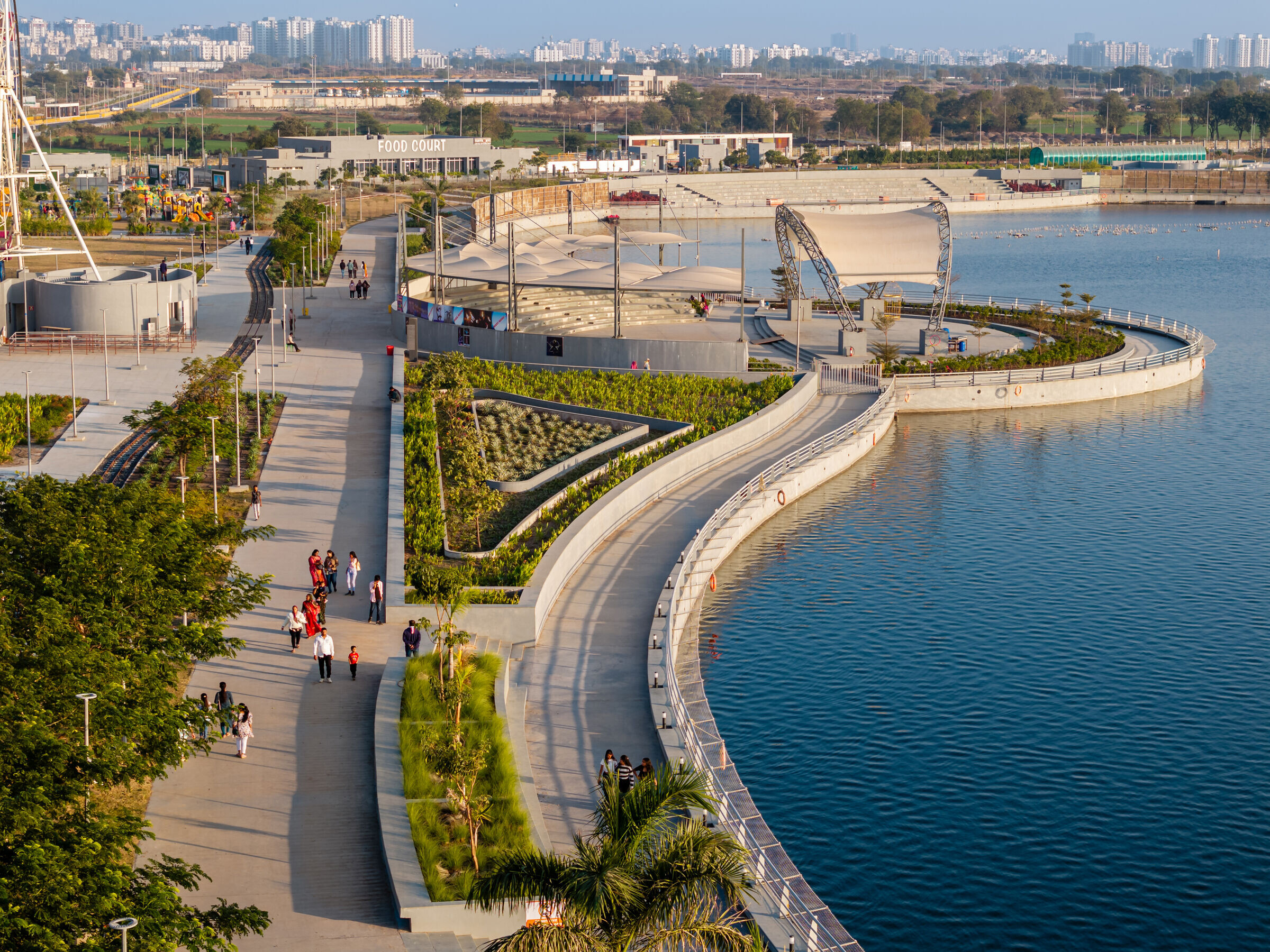
Atal Sarovar, set within the Smart City precinct of Rajkot, Gujarat, embodies this transformative ethos. By harmoniously blending ecological imperatives with urban vitality, it illustrates how visionary design can nurture environmental stewardship, social cohesion, and economic growth.
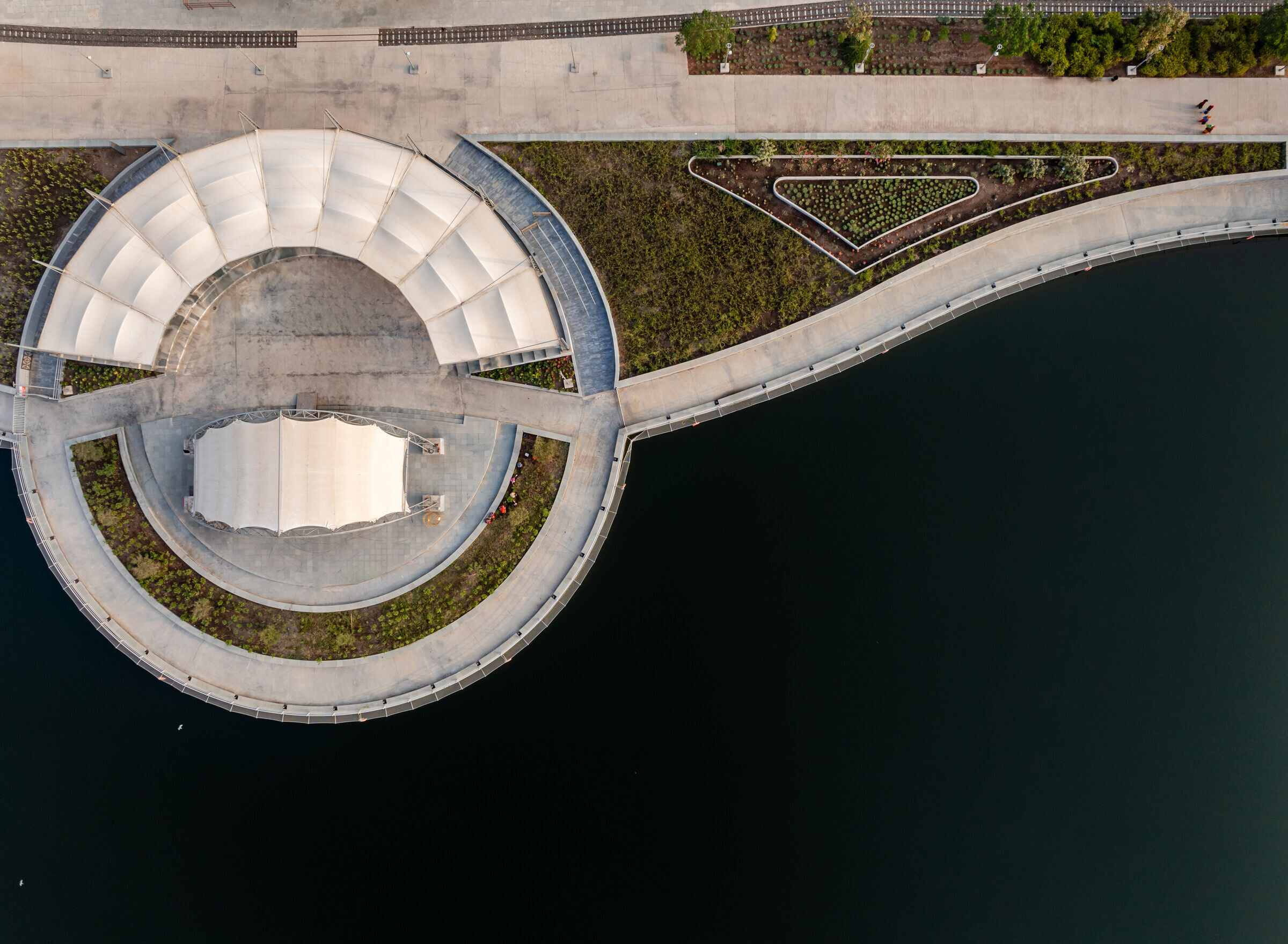
Harnessing Urban Hydrology - A Strategic Vision
Under India’s Smart Cities Mission, Rajkot’s 930-acre greenfield development presented an opportunity to reimagine three existing low-lying areas not as challenges, but as critical ecological assets.
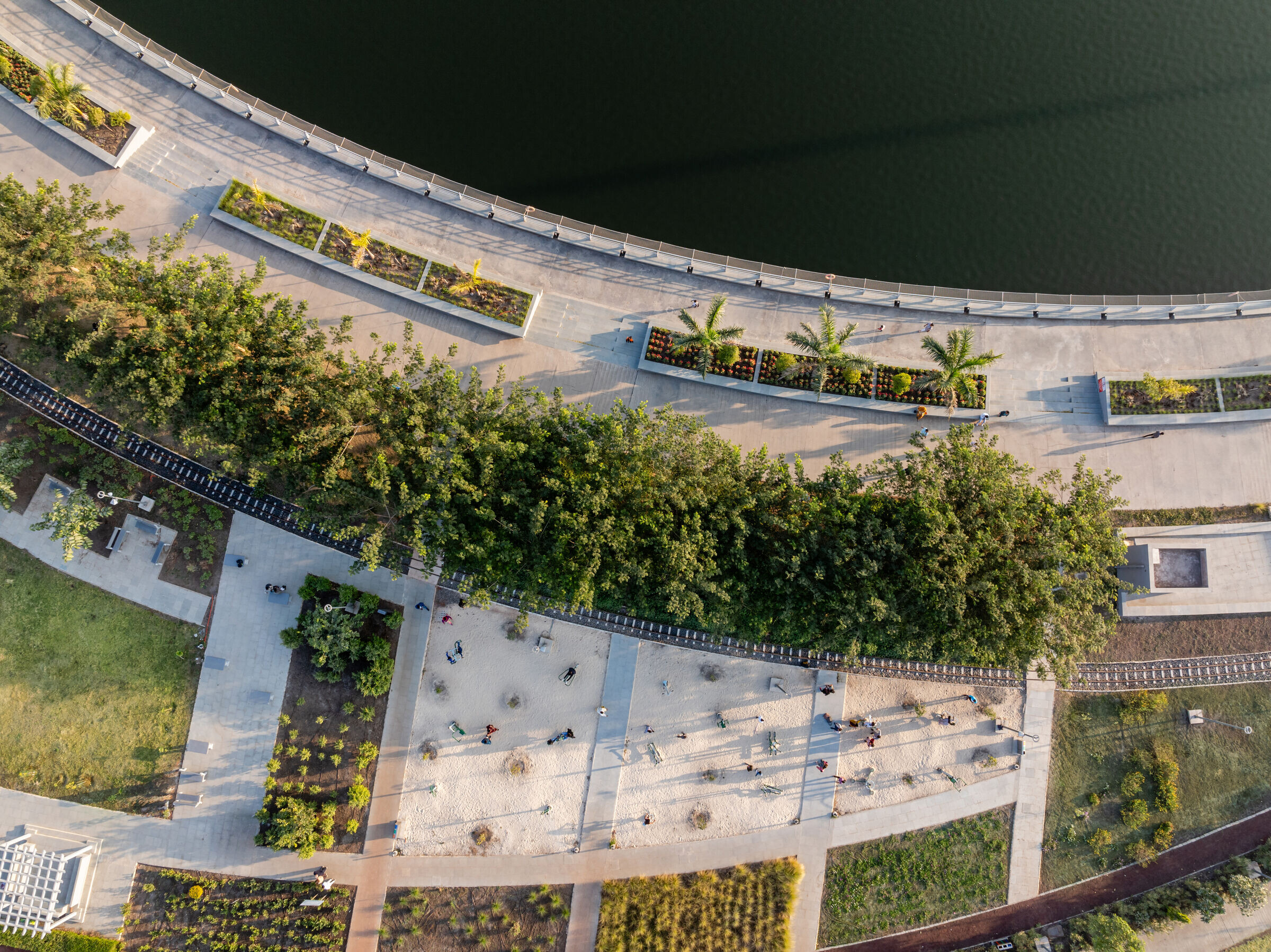
Rather than being neglected or engineered over, these natural depressions were envisioned as rejuvenated lakes, repositioned at the heart of urban life.
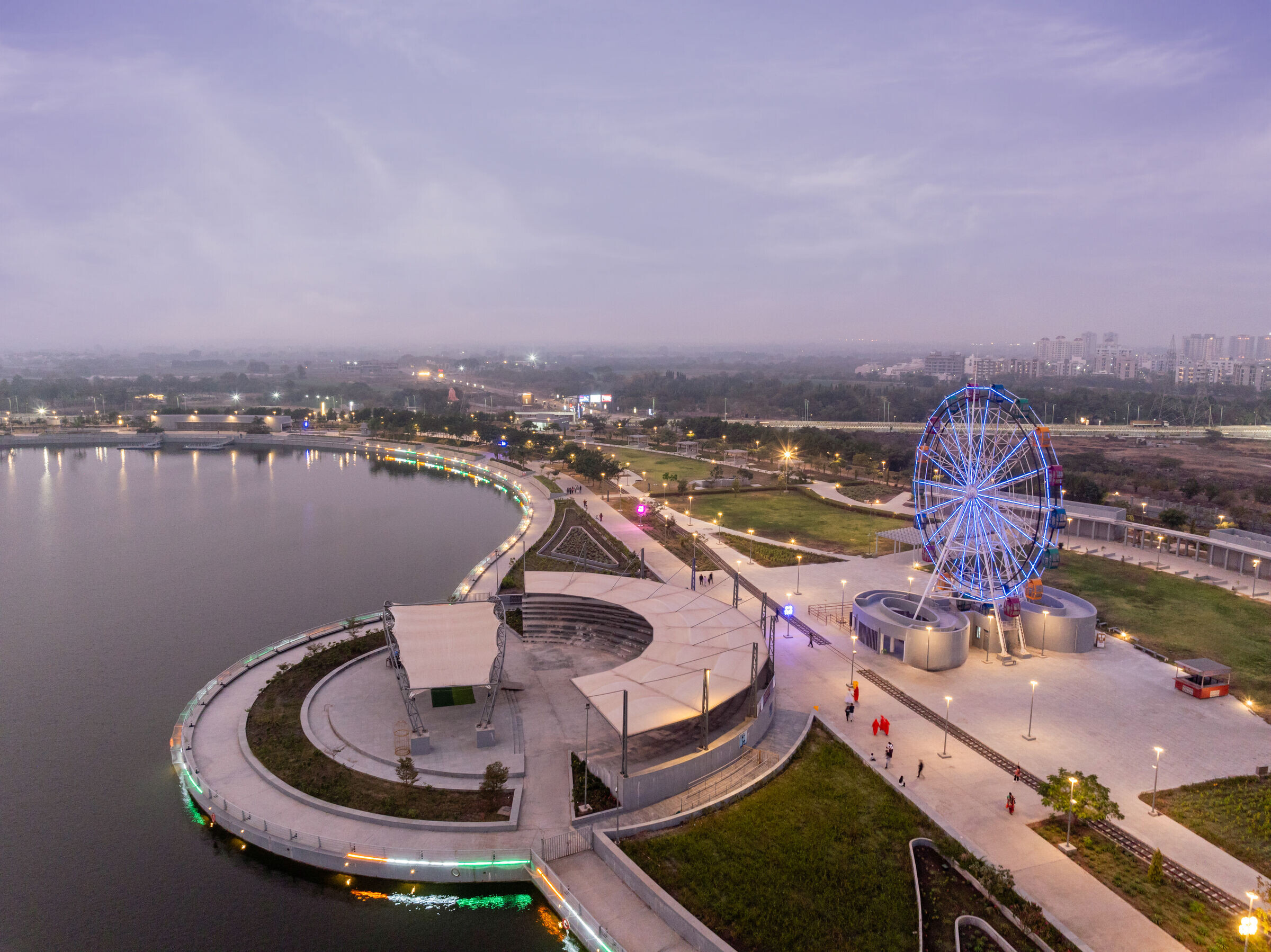
Among them, Atal Sarovar (Lake-1), occupying a 0.90 square kilometre catchment, emerged as the flagship intervention — bordered by arterial roads, adjacent to vibrant green zones, and carrying immense potential to blend hydrology, ecology, and public realm innovation.
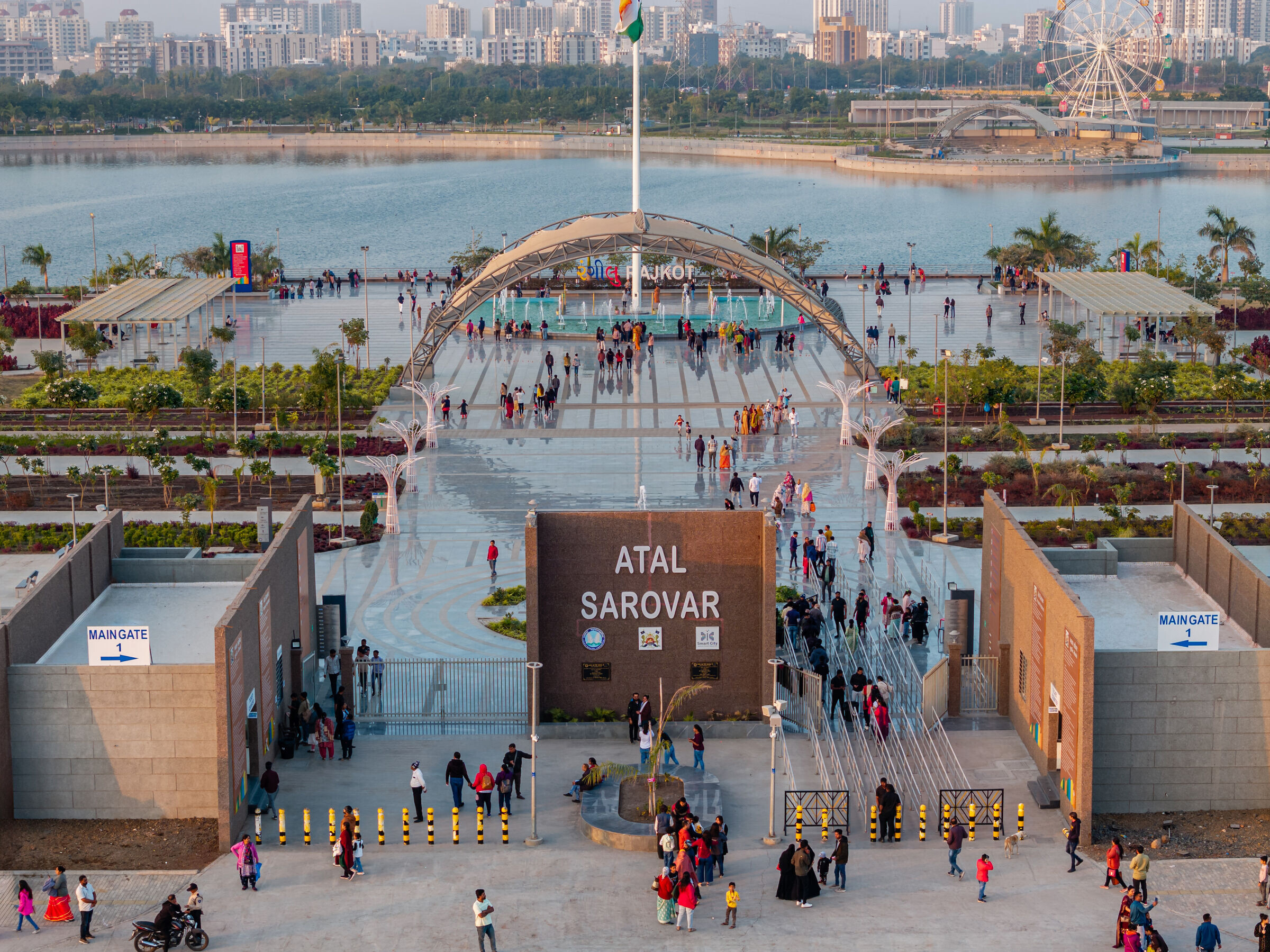
Designing for Ecology, Functionality, and Experience
The transformation of Atal Sarovar was guided by comprehensive environmental assessments and hydrological analyses, ensuring that every intervention respected the site's natural contours while amplifying its performance and aesthetics.
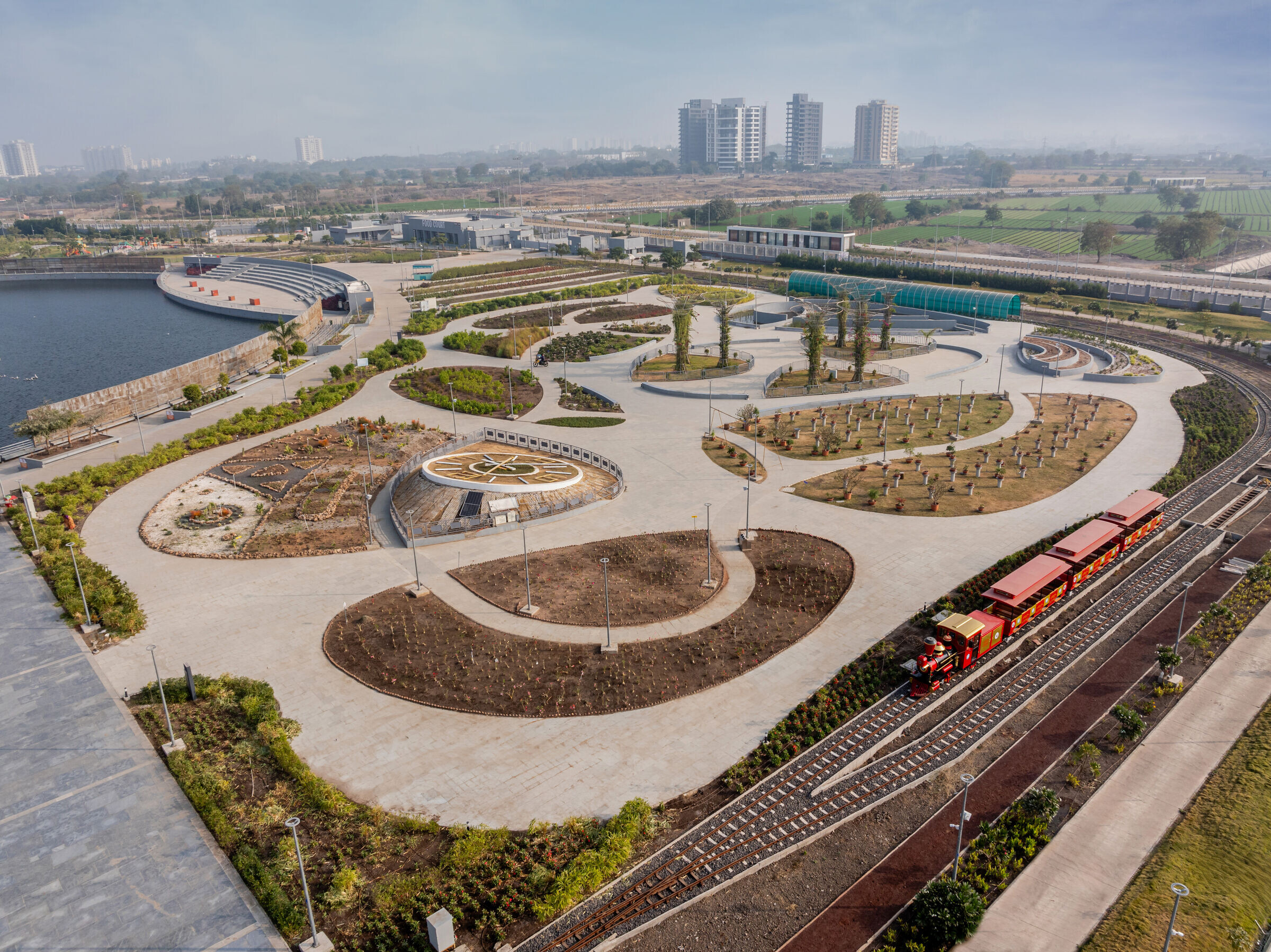
Key strategies included -
Hydrological resilience: Deepening the lakebed, stabilizing embankments, and designing outlet structures based on 100-year flood return periods to ensure year-round water retention and flood safety.
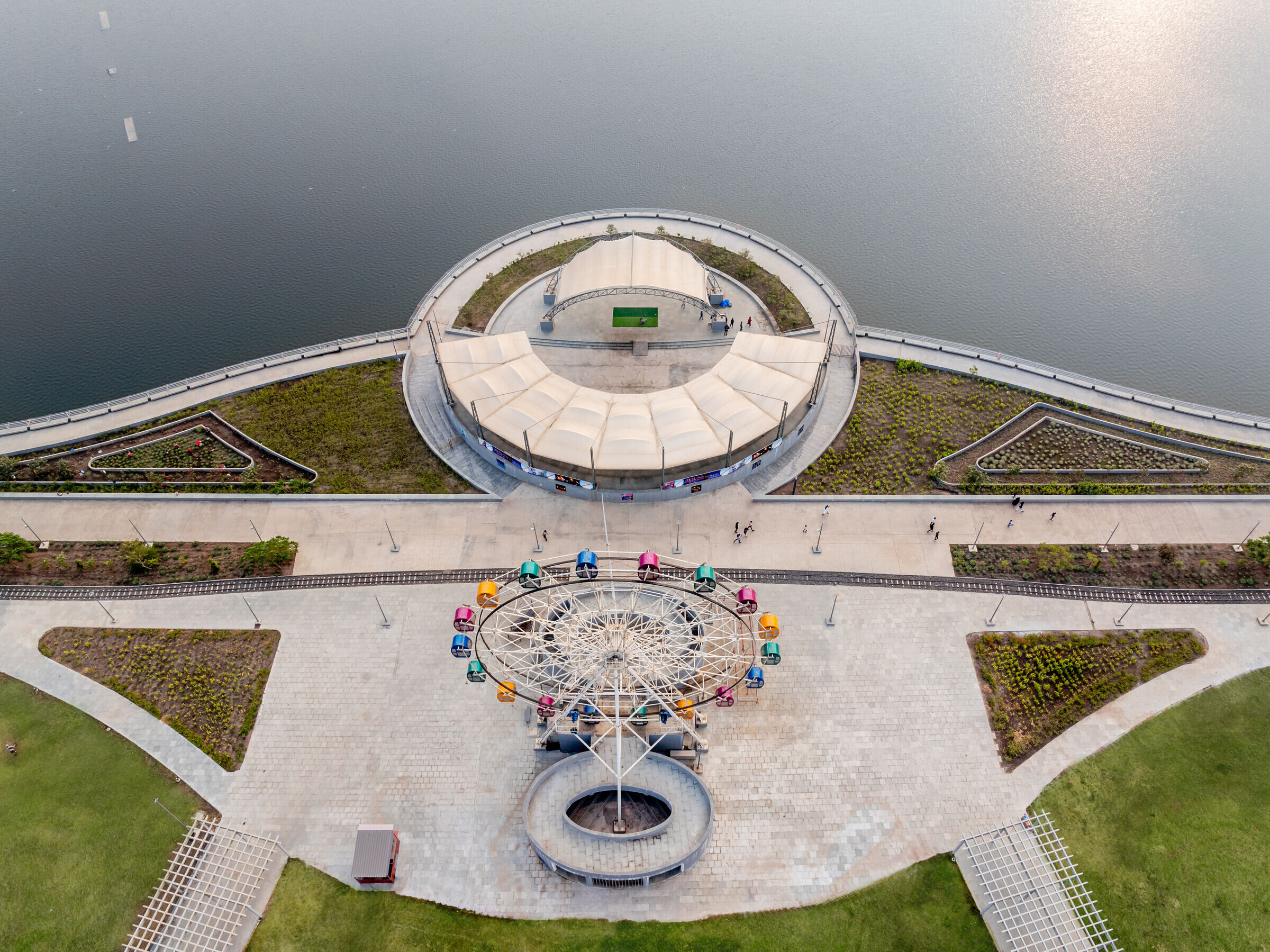
Smart water reuse: Innovatively channeling tertiary-treated water from a nearby Sewage Treatment Plant (STP) into the lake through the stormwater drainage system — optimizing water usage and ensuring sustainability.
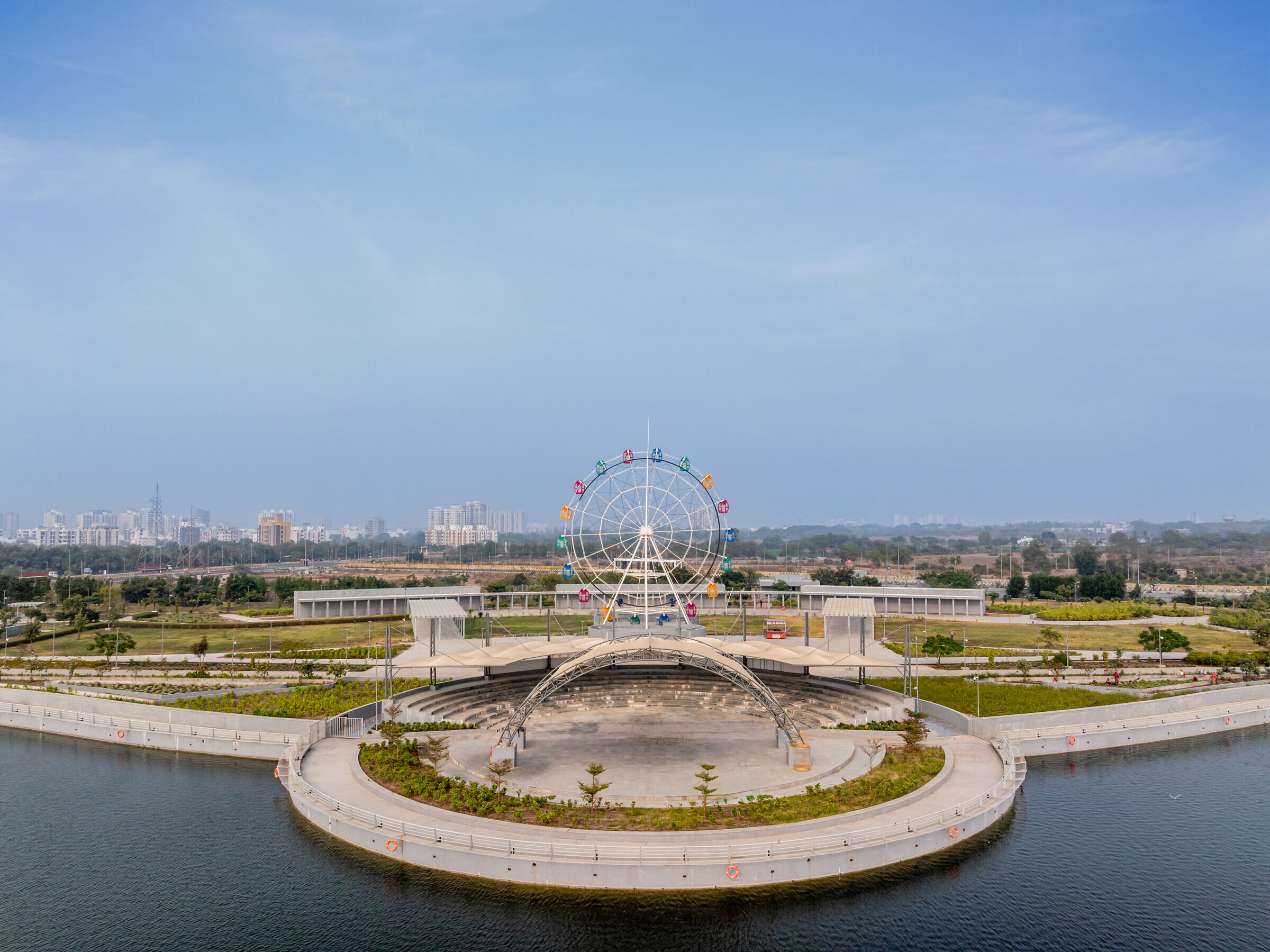
Interconnected water network: Strategically linking the three lakes via storm drains that overflow into an adjacent canal, ultimately connecting to the Nyari Dam, reinforcing ecological continuity.
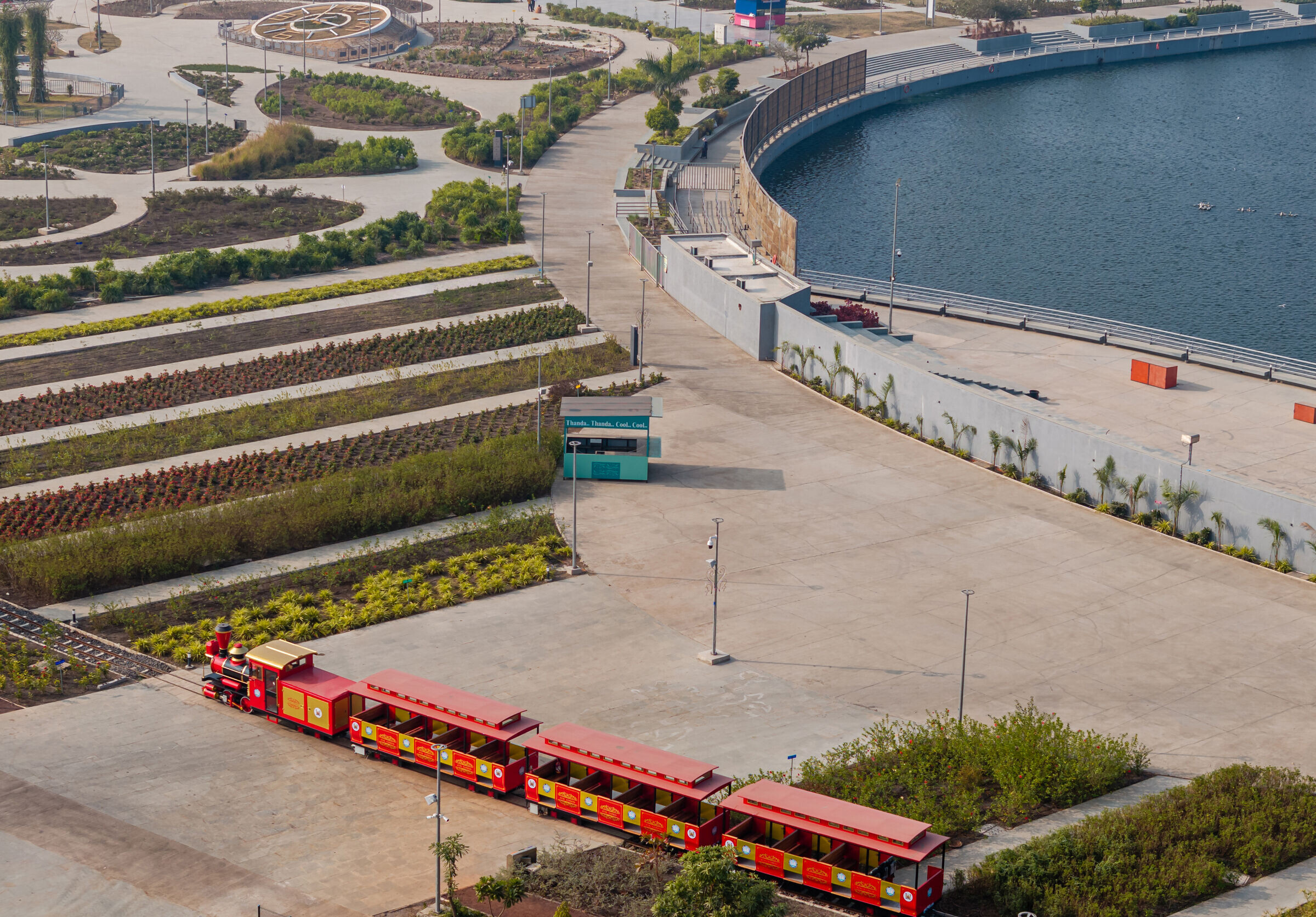
Crafting a Vibrant Urban Lakeside Realm
Beyond hydrological innovation, Atal Sarovar’s public realm design embraced aesthetics, culture, and community well-being.
Aesthetic fusion: The design language strikes a delicate balance between organic naturalism and structured geometry, enhancing visual appeal while respecting the site’s existing terrain.
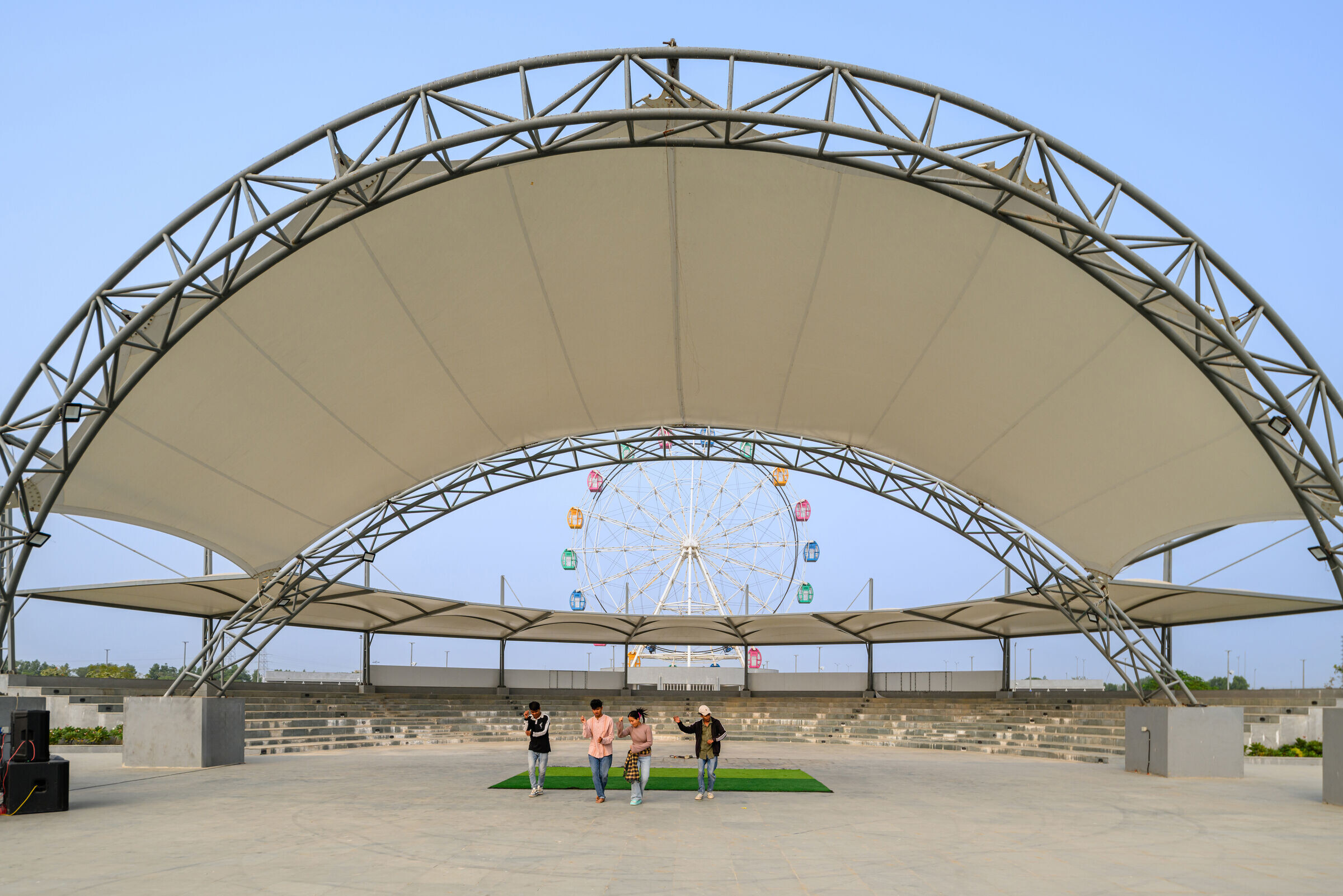
Non-motorized blue-green infrastructure: Networks of permeable trails, bioretention zones, and eco-parks weave around the lake, promoting accessibility, leisure, and non-intrusive mobility.
Cultural vitality: Thoughtfully designed spaces support community events, recreation, and everyday gatherings, enriching the emotional landscape and social fabric of Rajkot’s citizens.
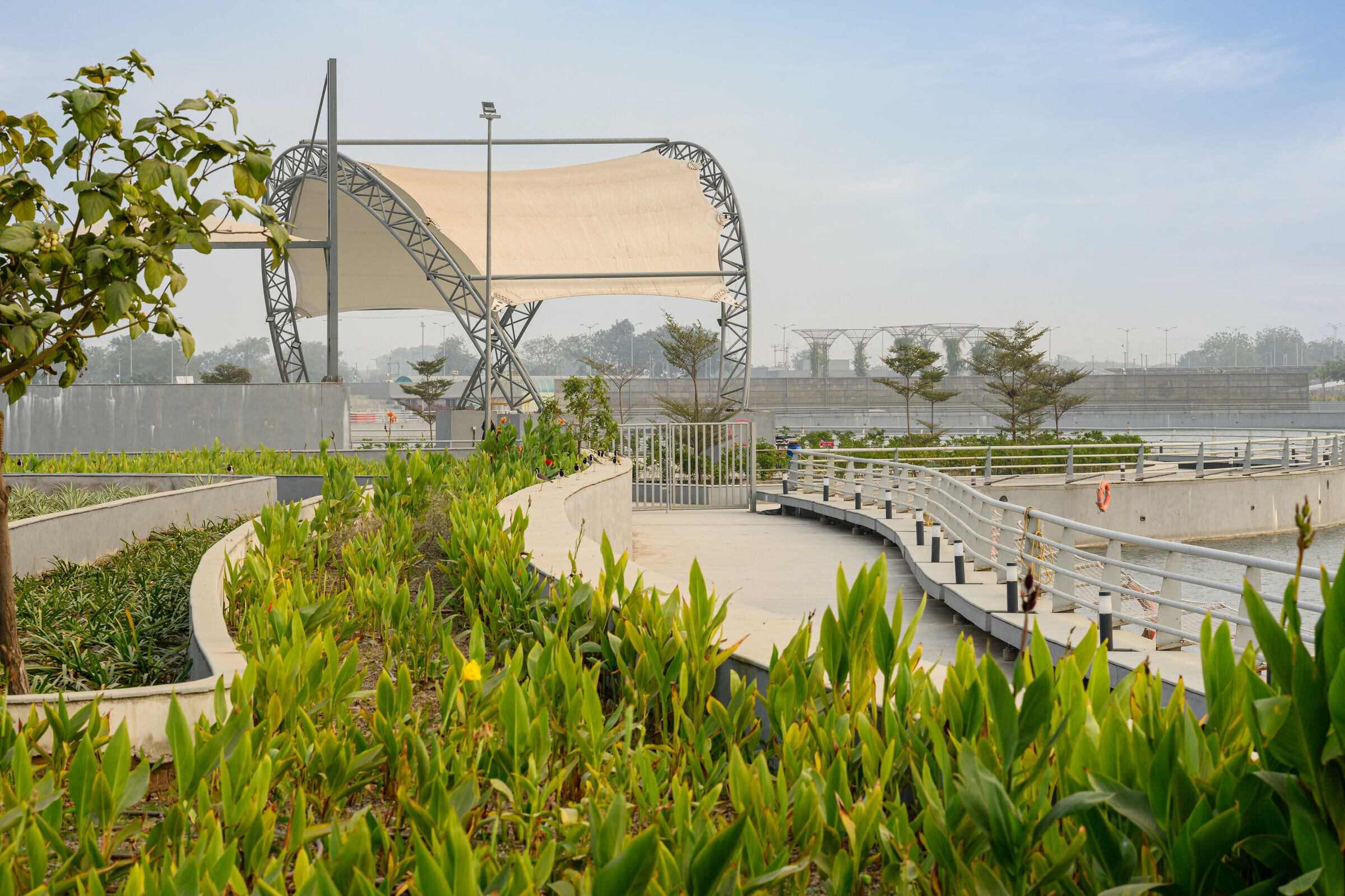
Sustainable Drainage Systems (SuDS)—featuring bioretention cells, and permeable surfaces—mimic natural water cycles, promoting groundwater recharge and reducing surface runoff.
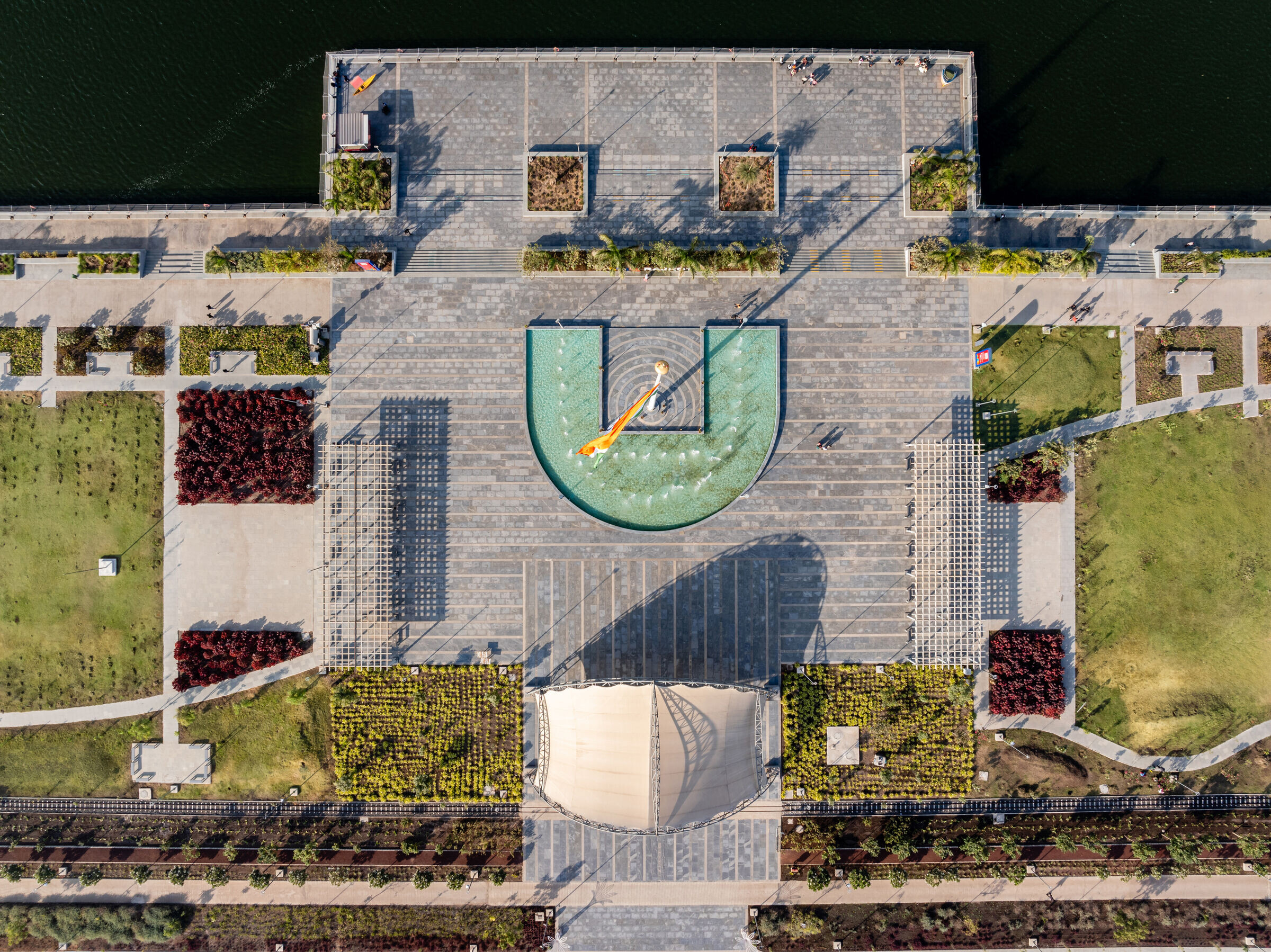
Enduring Impact - Ecology, Community, and Investment
The rejuvenation of Atal Sarovar has delivered a multifaceted impact-
Environmental: Restoring the natural hydrology and strengthening urban biodiversity.
Social: Creating inclusive spaces that encourage cultural expression, leisure, and community bonding.
Economic: Attracting new investments and catalyzing development across Rajkot’s Smart City precinct.
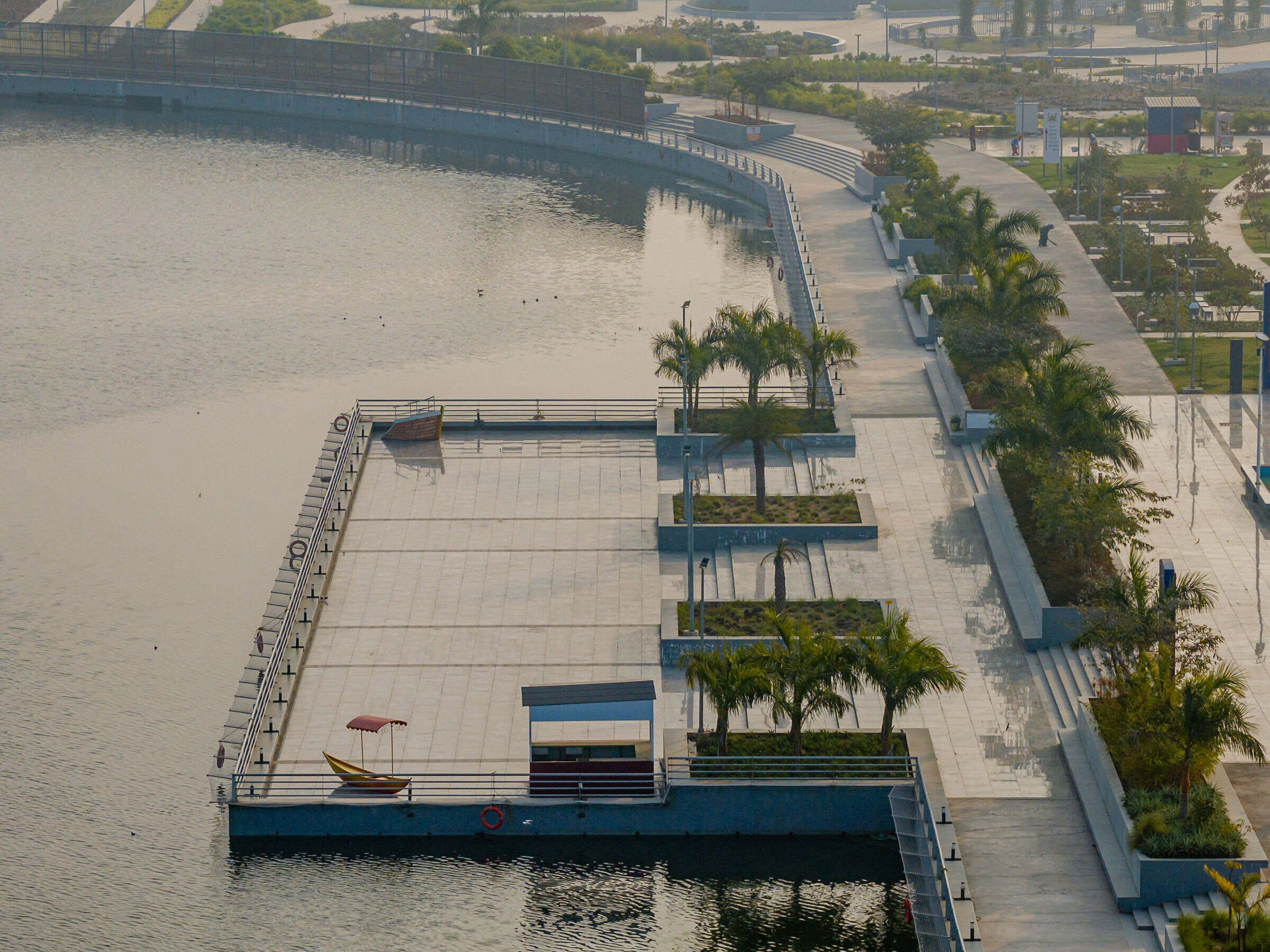
Atal Sarovar’s metamorphosis from a neglected depression to a vibrant urban oasis illustrates the profound possibilities of water-centric urban design. It exemplifies a resilient, dynamic template for future urban developments — where water bodies are not hidden, polluted, or marginalized, but celebrated as living, thriving anchors of urban life. It shows that with visionary thinking, careful environmental stewardship, and a deep respect for community needs, cities can rebuild their relationship with nature, creating places that endure, inspire, and nurture generations to come.
